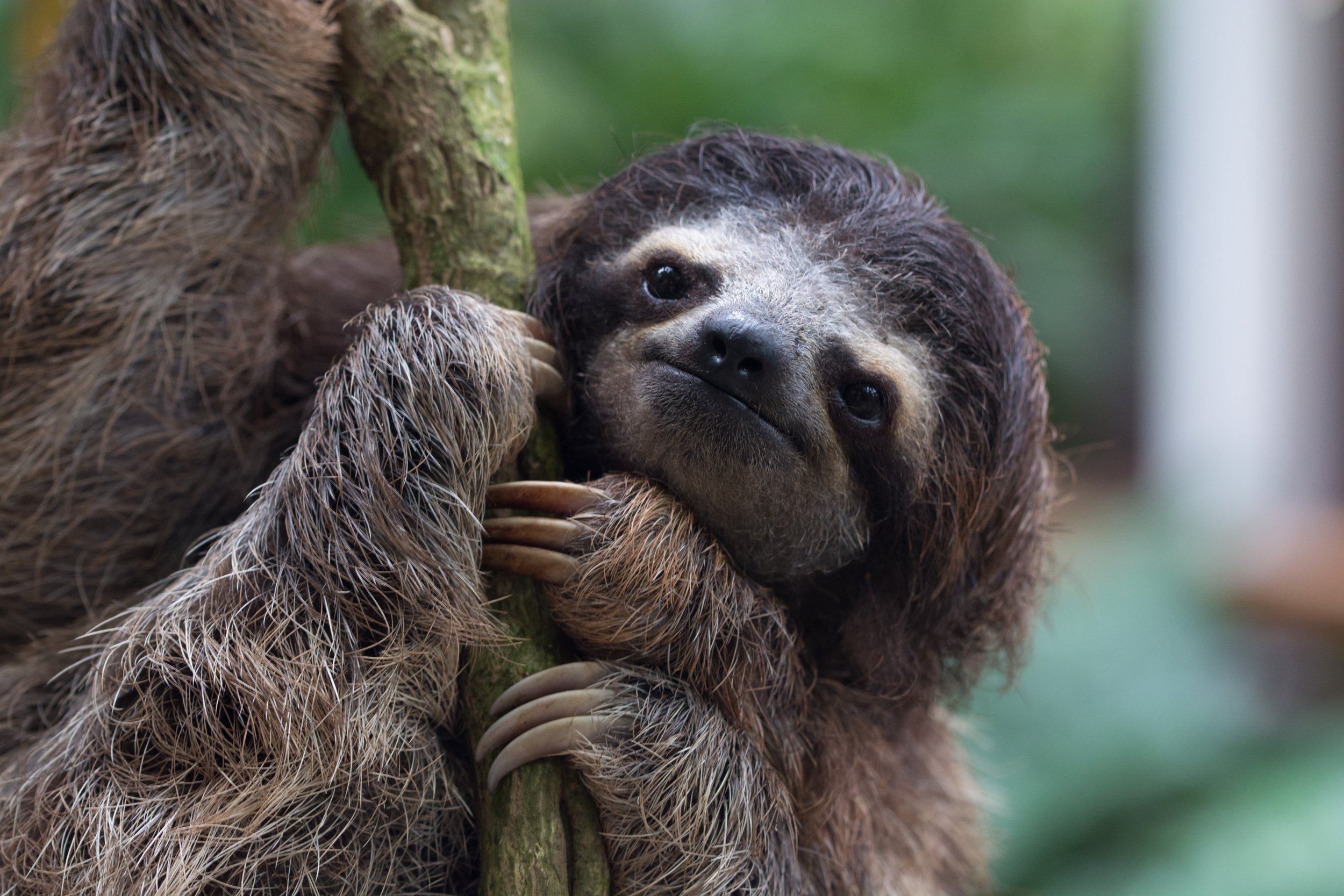Sloths
Explorers, it’s time to turn on your imagination because we are getting on a plane headed for the rainforests of South America. We are traveling deep into the rainforest today to learn about one of the coolest animals on Earth, the sloth!
1-2-3 LET'S GO!
Sloths move incredibly slow, so slow that they literally crawl 1 foot per minute if they are on the ground. They do move a bit faster while in their homes up in the trees. Sloths are arboreal, which means they spend most of their lives in the trees, not on the ground.
Sloths love being upside down, but it doesn’t bother them one bit. Their organs are attached to their ribs which helps them breathe very easily even when they’re not right-side-up.
These tree dwellers eat buds, leaves, and other parts of trees. Since their stomachs have different sections, their food can move slowly to digest rough parts of plants. It can take their bodies 30 days to digest 1 leaf!
Let’s listen to this story about George. What else can we learn about sloths?
So many facts about sloths seem out of this world, but this one is a winner!
Sloths have long claws that make walking on land hard for them, but they can move up to three times faster when they swim. They can also hold their breath for an impressive 40 minutes by slowing their heart rate down.
Time for a Challenge
Can you make a tree for George to live in?
Ask a grown-up and collect some green and brown construction paper, scissors, and glue or tape.
Click the sloth below to download and print.
Create a tree out of construction paper and cut out George the Sloth. You can use clothespins, paper clips, or just some tape or glue to put him up in your tree!
Don’t forget to share your creation! #heymrjim
“10 Facts about Sloths, Nature's Slowest Animals.” World Animal Protection, 23 Dec. 2020, https://www.worldanimalprotection.us/news/10-facts-about-sloths-natures-slowest-animals?gclsrc=aw.ds&gclid=Cj0KCQiAtJeNBhCVARIsANJUJ2FD2PDv3dvlg2LoJa-dELDq6lRzwudBviwm3-hauLig-3_4zEQ4NeUaAnoBEALw_wcB.


